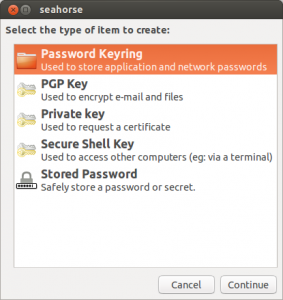


However, upon attempting to log in with "ssh I was still prompted for the password.Code: Select all OpenSSH_6.7p1 Raspbian-5+deb8u3, OpenSSL 1.0.1t ĭebug1: Reading configuration data /etc/ssh/ssh_configĭebug1: /etc/ssh/ssh_config line 19: Applying options for *ĭebug1: Connecting to rp2-home port 22.ĭebug1: identity file /home/sking/.ssh/id_rsa type 1ĭebug1: key_load_public: No such file or directoryĭebug1: identity file /home/sking/.ssh/id_rsa-cert type -1ĭebug1: identity file /home/sking/.ssh/id_dsa type -1ĭebug1: identity file /home/sking/.ssh/id_dsa-cert type -1ĭebug1: identity file /home/sking/.ssh/id_ecdsa type -1ĭebug1: identity file /home/sking/.ssh/id_ecdsa-cert type -1ĭebug1: identity file /home/sking/.ssh/id_ed25519 type -1ĭebug1: identity file /home/sking/.ssh/id_ed25519-cert type -1ĭebug1: Enabling compatibility mode for protocol 2.0ĭebug1: Local version string SSH-2.0-OpenSSH_6.7p1 Raspbian-5+deb8u3ĭebug1: Remote protocol version 2.0, remote software version OpenSSH_6.7p1 Raspbian-5+deb8u3ĭebug1: match: OpenSSH_6.7p1 Raspbian-5+deb8u3 pat OpenSSH* compat 0x04000000ĭebug3: load_hostkeys: loading entries for host "rp2-home" from file "/home/sking/.ssh/known_hosts"ĭebug3: load_hostkeys: found key type ECDSA in file /home/sking/.ssh/known_hosts:8ĭebug3: order_hostkeyalgs: prefer hostkeyalgs: SSH2_MSG_KEXINIT sentĭebug2: kex_parse_kexinit: kex_parse_kexinit: kex_parse_kexinit: kex_parse_kexinit: kex_parse_kexinit: kex_parse_kexinit: kex_parse_kexinit: kex_parse_kexinit: kex_parse_kexinit:ĭebug2: kex_parse_kexinit: first_kex_follows 0ĭebug2: kex_parse_kexinit: kex_parse_kexinit: ssh-rsa,ssh-dss,ecdsa-sha2-nistp256,ssh-ed25519ĭebug2: kex_parse_kexinit: kex_parse_kexinit: kex_parse_kexinit: kex_parse_kexinit: kex_parse_kexinit: kex_parse_kexinit: kex_parse_kexinit:ĭebug2: mac_setup: setup kex: server->client aes128-ctr noneĭebug2: mac_setup: setup kex: client->server aes128-ctr noneĭebug1: expecting SSH2_MSG_KEX_ECDH_REPLYĭebug1: Server host key: ECDSA 40:dd:65:dd:7c:b1:11:55:12:ea:fd:a5:fe:0c:63:c3ĭebug3: load_hostkeys: loading entries for host "192.168.1.32" from file "/home/sking/.ssh/known_hosts"ĭebug3: load_hostkeys: found key type ECDSA in file /home/sking/.ssh/known_hosts:7ĭebug1: Host 'rp2-home' is known and matches the ECDSA host key.ĭebug1: Found key in /home/sking/.ssh/known_hosts:8ĭebug2: key: /home/sking/.ssh/id_rsa (0x54fb2290),ĭebug2: key: /home/sking/.ssh/id_dsa ((nil)),ĭebug2: key: /home/sking/.ssh/id_ecdsa ((nil)),ĭebug2: key: /home/sking/.ssh/id_ed25519 ((nil)),ĭebug1: Authentications that can continue: publickey,passwordĭebug3: start over, passed a different list publickey,passwordĭebug3: preferred gssapi-keyex,gssapi-with-mic,publickey,keyboard-interactive,passwordĭebug3: remaining preferred: keyboard-interactive,passwordĭebug1: Next authentication method: publickeyĭebug1: Offering RSA public key: /home/sking/.ssh/id_rsaĭebug2: we sent a publickey packet, wait for replyĭebug1: Trying private key: /home/sking/.ssh/id_dsaĭebug3: no such identity: /home/sking/.ssh/id_dsa: No such file or directoryĭebug1: Trying private key: /home/sking/.ssh/id_ecdsaĭebug3: no such identity: /home/sking/.ssh/id_ecdsa: No such file or directoryĭebug1: Trying private key: /home/sking/.ssh/id_ed25519ĭebug3: no such identity: /home/sking/.ssh/id_ed25519: No such file or directoryĭebug2: we did not send a packet, disable methodĭebug1: Next authentication method: password: I left this empty, as I wasn't sure what it would be for, so I assumed setting one would require unlocking it with said passphrase each time I'd use it.Ĭontinuing with the instructions linked above, I then ran and received the following: ssh-copy-id No identities foundĪ quick search revealed that I needed to specify the location of the key, as it was not in the default save location, so I fixed that: ssh-copy-id -i /home/user/ssh/keys/server1key.pub asking for the server's password, it successfully added the key. It then prompted me to enter a passphrase. To that extent, I attempted to follow the instructions as outlined in the accepted answer here.įrom the system I wish to connect from, I ran: ssh-keygenĮnter file in which to save the key: /home/user/ssh/keys/server1key What I want to do is for my script to initiate the command and complete the connection.
Ssh copy id no identities found password#
As part of a startup script I have to automatically open several gnome-terminal windows, one of those terminals automatically send: ssh limitation with this is that I still need to type a password to complete the SSH connection.


 0 kommentar(er)
0 kommentar(er)
